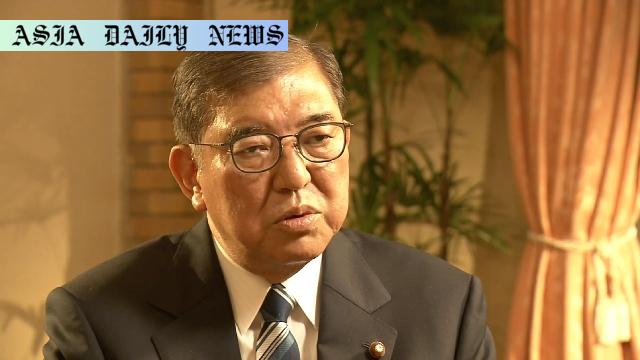Tariff Deal: Japanese Prime Minister Ishiba Shigeru commits to successfully implementing the US tariff agreement to secure economic growth.

Commitment to the US-Japan Tariff Deal
Japanese Prime Minister Ishiba Shigeru has affirmed his dedication to the successful implementation of the US-Japan tariff deal. This agreement, encompassing 4,318 export items, primarily aims to ensure economic fairness and stability for businesses in both nations. In his statement to NHK, Ishiba emphasized the significance of protecting Japan’s small and mid-sized enterprises (SMEs) and sole proprietors. These sectors are essential to Japan’s economy, contributing substantially to employment and innovation. By prioritizing this agreement, Ishiba hopes to pave the way for steady economic growth while minimizing any potential disruptions or concerns for domestic businesses.
Balancing Leadership and Responsibility
While addressing opposition within the ruling Liberal Democratic Party, Ishiba demonstrated a leadership style rooted in selflessness and national dedication. He emphasized that his focus remains on Japan’s national interest rather than personal political ambitions. According to Ishiba, the tariff agreement’s success not only reflects Japan’s commitment to international trade agreements but also establishes the nation’s position on a global stage. Transparency and proactive leadership are fundamental in achieving the agreement’s goals, particularly in times of political challenge.
Contributing to Japan’s Prosperity
Ishiba underlined the importance of ensuring the tariff deal fosters Japan’s long-term economic survival and growth. This includes examining its implications for small business owners, creating a robust financial framework that equips them to compete in global markets. The Prime Minister stated that his responsibility extends beyond mere implementation; it includes cultivating an economic environment that allows businesses to flourish under this agreement. Collaborative efforts between stakeholders, government officials, and business leaders will establish a foundation for shared prosperity.
Opposition and Broader Economic Measures
Aside from the tariff discussion, Ishiba touched upon broader economic concerns, particularly rising living costs. He pointed out the need for thorough, informed debates about the appropriate economic measures, such as tax cuts or cash handouts, to support citizens during financially challenging times. Notably, he invited opposition parties to engage in discussions about how to restructure Japan’s social security and financial systems without compromising essential services. Ishiba highlighted that his government would strive for transparent solutions to today’s economic challenges, ensuring long-term social security and fiscal responsibility.
Engaging with Political Opponents
In his appeal to opposition parties, Ishiba demonstrated a willingness to engage in productive dialogue. By underlining the necessity of aligning debates using accurate data and mutual understanding, Ishiba showed the importance of collaborative governance. This approach ensures that decisions regarding consumption tax cuts are informed and balanced with future financial stability. Such dialogue signifies his effort towards creating bipartisan efforts that benefit the entire nation.
Strengthening Japan-US Relations
The tariff deal also symbolizes the strengthening ties between Japan and the United States. As two major global economic powers, this agreement has the potential to bridge trade gaps and encourage mutual growth. Ishiba’s commitment to its success underscores not just Japan’s dedication to its promises but also its broader intent to deepen economic and strategic relations with the US. Focusing on diplomacy and seamless implementation, Ishiba’s leadership reflects Japan’s aspirations for economic and geopolitical stability in the region.
Commentary
Leadership Amidst Political Pushback
Prime Minister Ishiba Shigeru’s approach to the US-Japan tariff agreement highlights a strong commitment to Japan’s future prosperity, even in the face of political resistance. His insistence on prioritizing national interests demonstrates a rare quality of leadership that seeks to rise beyond self-serving motives. Amid debates within the ruling Liberal Democratic Party and external challenges from opposition parties, Ishiba’s steady stance sends a reassuring message to Japanese citizens about his commitment to their well-being.
A Holistic Approach to Economic Stability
One of the most commendable aspects of Ishiba’s strategy is his focus on small and medium-sized enterprises (SMEs). By addressing their concerns and ensuring they remain competitive under the new tariff conditions, Ishiba encapsulates what it means to lead with empathy and foresight. SMEs often form the backbone of a nation’s economy, and their resilience directly impacts the livelihood of many families. Ishiba’s proactive measures in supporting these businesses provide a sense of security and stability during uncertain economic times.
Encouraging Unified Efforts for Growth
Another standout quality in Ishiba’s leadership is his openness to collaboration with political opponents. Inviting opposition parties to partake in meaningful dialogue regarding social security funding amidst the prospect of consumption tax cuts reflects maturity and pragmatism. Such bipartisanship goes a long way in fostering faith in a government that genuinely seeks solutions benefiting the entire population rather than restricting discussions to partisan ideologies.
Sustainability in International Relations
Finally, Ishiba’s determination to implement the tariff deal with precision strikes a chord in Japan-US relationships. These two countries share significant interdependence in trade and diplomacy, and success in their agreements often sets benchmarks for other nations. Ishiba’s approach could pave the way for further collaborations, strengthening not only economic partnerships but also geopolitical stability—a much-needed ingredient in today’s dynamically shifting global environment.


